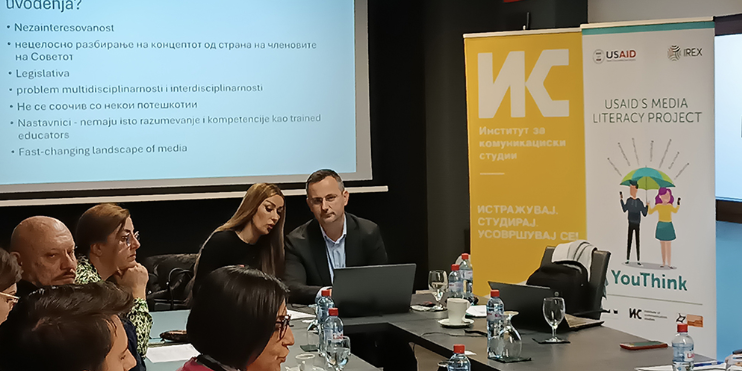What knowledge and skills should a citizen possess to be media literate? This was the key question that the professors from the pedagogy and other faculties at various universities discussed with Croatian professor and media literacy expert, Igor Kanizhaj.
Together with him, they looked at the traditional concepts of setting learning goals when creating a media literacy programme, compared to digital competencies (Digi Comp 2.2.). They summed up the differences between “digital literacy”, “information literacy”, “media and information literacy” and “media literacy”, as well as the concepts promoted by the European Union, UNESCO, some research centers and other professional organizations in the field.
The Macedonian professors agreed that the country lacked a national framework for media literacy competencies in higher education, unlike primary and secondary education (which will soon be adopted).
The workshop was organized by the Institute of Communication Studies, as part of USAID’s “YouThink” media literacy project managed by IREX in cooperation with the Macedonian Media Institute and the Youth Educational Forum. Under this project, eight faculties from six universities introduced media literacy courses into their study programmes.
The meeting was held as part of the 2024 Media Literacy Days.






